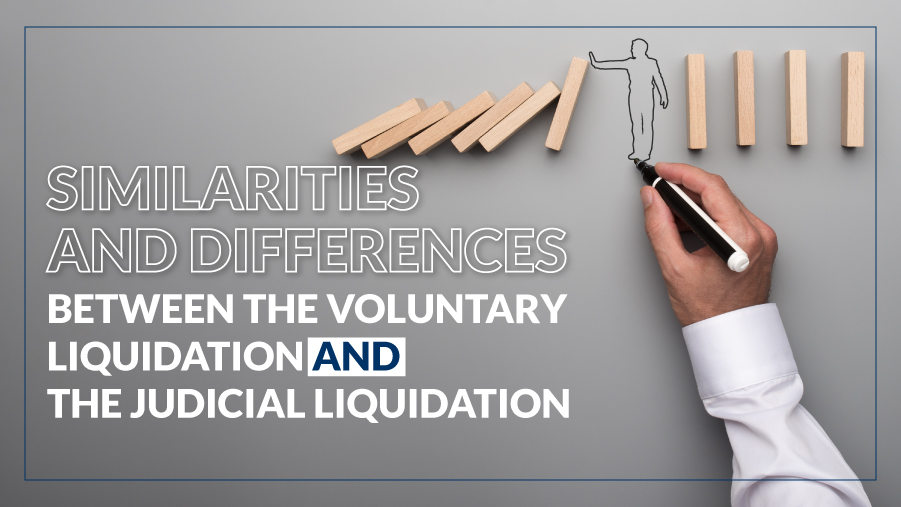What does the liquidation process consist of?

Voluntary liquidation
(Wind up process)
The purpose of the voluntary liquidation (wind up process) is the dissolution and liquidation of a company by decision of its members who will appoint someone responsible of carrying out a private liquidation process.
Judicial
Liquidation
The purpose of the judicial liquidation process is the prompt and organized liquidation, based on the debtor’s assets, obligations, and rights before a public authority such as the Superintendencia de Sociedades under the management of a public servant.
What are the main causes for the company’s liquidation?

Voluntary liquidation
(Wind up process)
The grounds of voluntary liquidation are:
- After the expiration of the term, and subsequent renewals, of the Company.
- The impossibility of developing the Company´s purpose.
- By reduction or increase of the number of shareholders to less than the number required by law for its formation or operation, or exceeding the maximum limit fixed by the same law
- Due to the causes expressly and clearly stipulated in the Bylaws.
- By decision of the associates, in compliance with the law and the Bylaws.
- By decision of the competent authority.
- By other causes established in the laws, concerning to other types of corporations governed by the Commercial Code.
Judicial
Liquidation
Judicial liquidation resembles to a sanction and may occur for one of the following reasons:
- Bankruptcy agreement breach
- Abandonment of the company (i.e., not complying with its minimum formal requirements and filings)
- By order of the entity responsible of the surveillance and control of the company
- By joint request made by the debtor and a plural number of creditors.
Which are the qualities for the appointment?

Voluntary liquidation
(Wind up process)
The shareholders or partners might appoint the manager, legal representative, or an external person as liquidator
Judicial
Liquidation
The liquidator shall be registered in the list of the Superintendencia de Sociedades as judicial assistant.
What is the role of the liquidator?

Voluntary liquidation
(Wind up process)
Judicial
Liquidation
Is a manager or director of the company, who may concur with the legal representative. Among other, the liquidator has the following roles/ activities:
- Judicial Assistant
- Legal representative and manager of the liquidation process.
- Trustee.
- Conciliator
- Competence to propose and develop strategies.
Who appoints the liquidator?

Voluntary liquidation
(Wind up process)
Shareholders or partners of the company.
Judicial
Liquidation
The judge appoints the liquidator from the list of judicial ancillaries
What are the liquidator main duties?

Voluntary liquidation
(Wind up process)
- Prepare a list of the company assets.
- Present the detailed inventory at the shareholders’ meeting.
- Art. 242 Commercial Code: Cancellation of external liabilities, considering the credit priority provisions.
Judicial
Liquidation
Among other, its main functions are:
- Protect the credit, to diligently care for and administer the assets received to complete its assignment.
- To review the rendering of accounts presented by the previous administrators and initiate legal actions for collection or reintegration of assets.
- To promote the process in protection of the principle of procedural economy.

OlarteMoure’s corporate and litigation teams can assist you in these matters.








